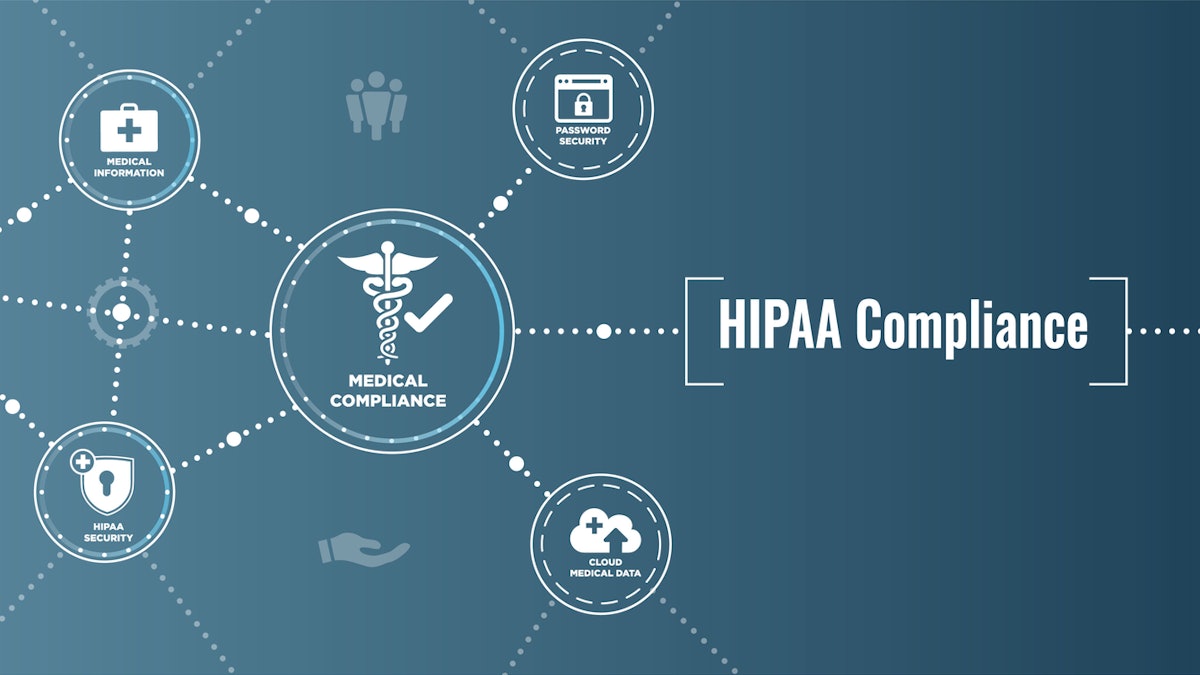The protection of sensitive data is a top concern for all organizations in the digital age. In the healthcare industry, the Health Insurance Portability and Accountability Act (HIPAA) has strict guidelines regarding the management, storage, handling, and security of protected health information (PHI). HIPAA compliance for healthcare organizations is crucial to maintain their image, safeguard patient privacy, and avoid penalties.

HIPAA covers all healthcare providers, healthcare plans, healthcare clearinghouses as well as business associates. PHI is defined as any information that could be used to identify an individual, like names, addresses, credit card information as well as social security numbers as well as details about medical procedures and conditions. PHI is a commodity that can be traded on the black market at an expensive price because of the use of it in identity theft.
The HIPAA Privacy rule defines guidelines for use and disclosure of health-related personal information (PHI). To ensure the integrity, confidentiality and accessibility of the information, covered entities must establish policies and practices. These policies and procedures should cover access controls as well as security incident protocols, security awareness training, as well as additional security measures. The covered entities should also restrict the use and disclosure of PHI to a minimum required to achieve the purposes of the use or disclosure.
The HIPAA Security Rule obliges covered entities to protect the security, confidentiality, and accessibility of ePHI by using reasonable and appropriate administrative, physical, and technical security measures. These safeguards include access control, integrity controls, audit control, security of transmission, and contingency plans. The covered entities must also perform periodic risk assessments in order to find vulnerabilities and take mitigation measures.
The HIPAA Breach Notification Rule obliges covered entities to notify the affected patients, Secretary of Health and Human Services and in some instances the media of any breach of encrypted PHI. A breach is defined as the acquisition, access, disclosure, or usage of PHI which violates the Privacy Rule and threatens the security of or privacy. The entities that are covered by the rule must undertake a risk analysis order to determine if the PHI is at risk, and the damage that could result from the breach.
HIPAA compliance requires ongoing education and training for employees to ensure they understand their responsibilities regarding patient privacy and security. Employers covered by HIPAA must conduct regular risk assessments to discover the potential weaknesses and then take measures to mitigate those risks. These include the implementation of security controls, including encryption of ePHI and developing contingency planning in the event of a security attack.
Technology has had an impact on practically every aspect of modern life and healthcare isn’t an exception. Electronic health records revolutionized healthcare because they allowed healthcare providers and patients to share their information easily. HIPAA compliance is essential due to the huge cyber-security risks that have been created. The data of patients is extremely sensitive and should be kept safe throughout the day. HIPAA is never more vital than it is today, due to the increasing threat of cyberattacks against healthcare institutions. HIPAA protects privacy and security for patients’ information. This creates trust between patients and healthcare providers.
HIPAA compliance will allow healthcare organizations to protect patient privacy while maintaining the trust of their patients. Infractions to HIPAA regulations can lead to significant fines, legal action, and reputational damage. Office for Civil Rights of the Department of Health and Human Services is charged with the enforcement of HIPAA regulations and can investigate complaints and conduct review of compliance.
HIPAA compliance in today’s current digital day is essential for healthcare institutions. HIPAA’s regulations provide specific guidelines for how to store, manage, manage, and protect protected health information. Healthcare organizations must ensure that they have policies and procedures in place to comply with HIPAA regulations, conduct regular risk assessments, and provide ongoing training and education for employees. If they do this, they can maintain the confidence of their patients and stay clear of significant fines and legal action.
For more information, click how does hipaa protect patients